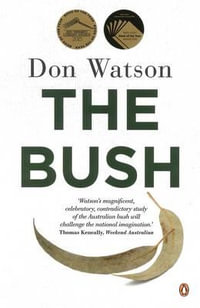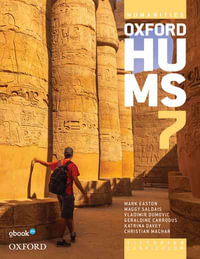How an audacious environmental engineering plan fanned white settlers' visions for South Africa, stoked mistrust in scientific experts, and gave rise to the Apartheid state.
In 1918, South Africa's climate seemed to be drying up. White farmers claimed that rainfall was dwindling, while nineteenth-century missionaries and explorers had found riverbeds, seashells, and other evidence of a verdant past deep in the Kalahari Desert. Government experts insisted, however, that the rains weren't disappearing; the land, long susceptible to periodic drought, had been further degraded by settler farmers' agricultural practices-an explanation that white South Africans rejected. So when the geologist Ernest Schwarz blamed the land itself, the farmers listened. Schwarz held that erosion and topography had created arid conditions, that rainfall was declining, and that agriculture was not to blame. As a solution, he proposed diverting two rivers to the Kalahari's basins, creating a lush country where white South Africans could thrive. This plan, which became known as the Kalahari Thirstland Redemption Scheme, was rejected by most scientists. But it found support among white South Africans who worried that struggling farmers undermined an image of racial superiority.
Green Lands for White Men explores how white agriculturalists in southern Africa grappled with a parched and changing terrain as they sought to consolidate control over a Black population. Meredith McKittrick's timely history of the Redemption Scheme reveals the environment to have been central to South African understandings of race. While Schwarz's plan was never implemented, it enjoyed sufficient support to prompt government research into its feasibility, and years of debate. McKittrick shows how white farmers rallied around a plan that represented their interests over those of the South African state and delves into the reasons behind this schism between expert opinion and public perception. This backlash against the predominant scientific view, McKittrick argues, displayed the depth of popular mistrust in an expanding scientific elite.
A detailed look at the intersection of a settler society, climate change, white nationalism, and expert credibility, Green Lands for White Men examines the reverberations of a scheme that ultimately failed but influenced ideas about race and the environment in South Africa for decades to come.
Industry Reviews
"The high modernist fantasy to divert rivers, flood the Kalahari, and create rain-with hopes of settling three million white people-was impossible. But to farmers fearing failure in a drought-prone majority-Black land, it promised redemption. Encompassing their precarity, vernacular ecological knowledge, and racial identity, Green Lands for White Men is an unparalleled environmental history of twentieth-century white South Africa." -- Nancy J. Jacobs, author of Birders of Africa: History of a Network
"As some commentators seek to dismiss the idea of settler colonialism as nothing more than an academic fad, McKittrick's wonderful new book reminds us of the idea's historicity and political cost; more importantly, Green Lands for White Men exposes the hubris and the fundamentally white supremacist underpinnings of that idea. As McKittrick shows so well in this well-researched and powerfully-argued study, apartheid did not come out of nowhere; it grew out of dystopias that not only misread colonized habitats but also effaced the indigenous inhabitants of those places. But this timely book is more than an expose of terrible ideas. It is, above all, environmental history at its best: historical in its grounding, meticulous in its use of sources, sophisticated in its analysis, alert to the ethical stakes of its argument, and refreshingly bold in its approach to South Africa's place in global networks of ideas and practices." -- Jacob S. T. Dlamini, author of The Terrorist Album: Apartheid's Insurgents, Collaborators, and the Security Police
"An apocalyptic fear haunted whites in Africa: that nature itself was against them. This book dissects how these fantasies and fears coalesced in a story about sustaining a drying land and a dying dream. Bold, rigorous, and original, McKittrick offers us a history as stark and tough as the Kalahari desert." -- Sandra Swart, author of The Lion's Historian: Africa's Animal Past
























